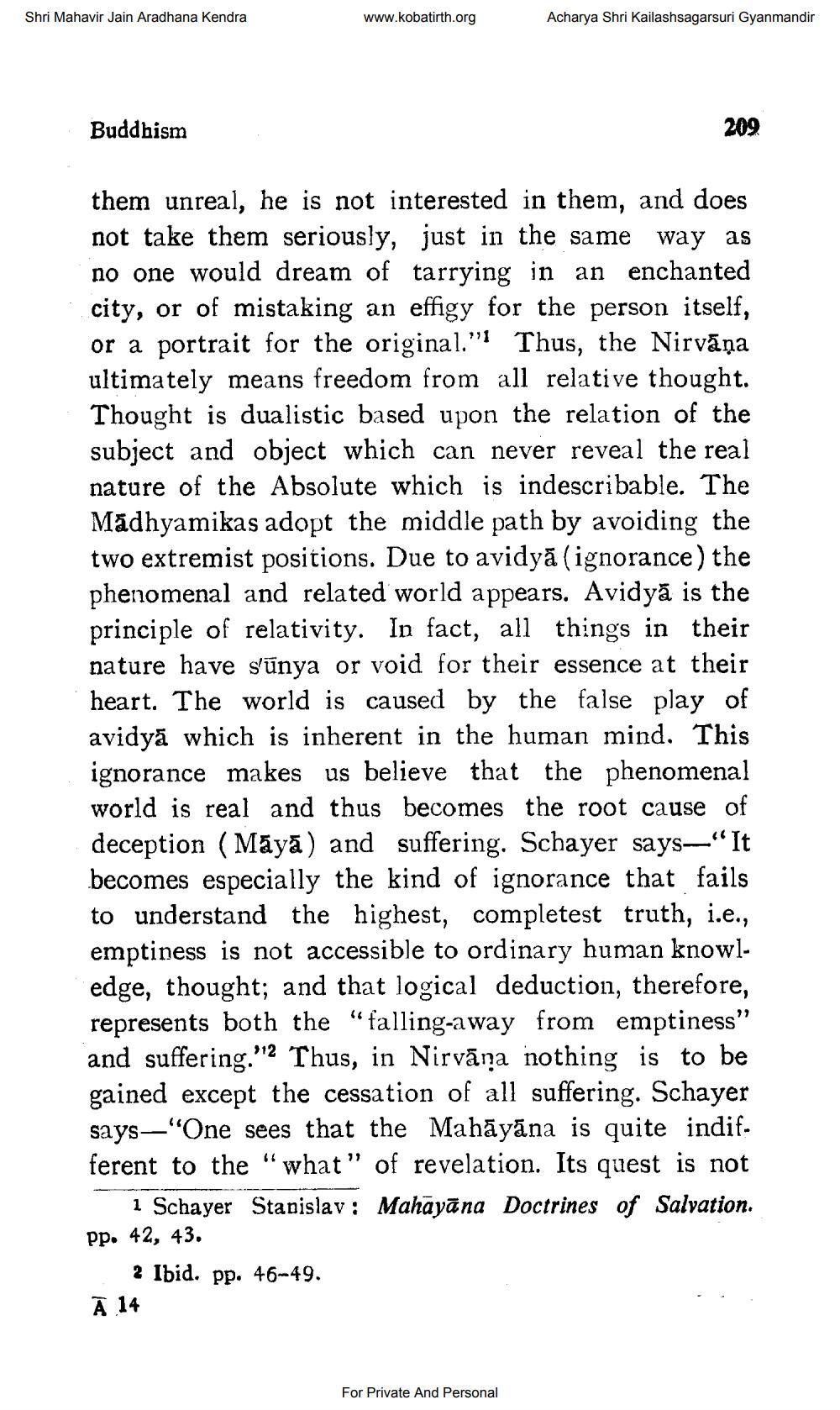________________
Shri Mahavir Jain Aradhana Kendra
www.kobatirth.org
Acharya Shri Kailashsagarsuri Gyanmandir
Buddhism
209
them unreal, he is not interested in them, and does not take them seriously, just in the same way as no one would dream of tarrying in an enchanted city, or of mistaking an effigy for the person itself, or a portrait for the original." Thus, the Nirvāņa ultimately means freedom from all relative thought. Thought is dualistic based upon the relation of the subject and object which can never reveal the real nature of the Absolute which is indescribable. The Madhyamikas adopt the middle path by avoiding the two extremist positions. Due to avidyā (ignorance) the phenomenal and related world appears. Avidyā is the principle of relativity. In fact, all things in their nature have sūnya or void for their essence at their heart. The world is caused by the false play of avidyā which is inherent in the human mind. This ignorance makes us believe that the phenomenal world is real and thus becomes the root cause of deception (Māyā) and suffering. Schayer says—“It becomes especially the kind of ignorance that fails to understand the highest, completest truth, i.e., emptiness is not accessible to ordinary human knowledge, thought; and that logical deduction, therefore, represents both the “falling-away from emptiness” and suffering."2 Thus, in Nirvāna nothing is to be gained except the cessation of all suffering. Schayer says—"One sees that the Mahāyāna is quite indif. ferent to the "what” of revelation. Its quest is not
1 Schayer Stanislav: Mahāyāna Doctrines of Salvation. pp. 42, 43.
2 Ibid. pp. 46-49. Ā 14
For Private And Personal




